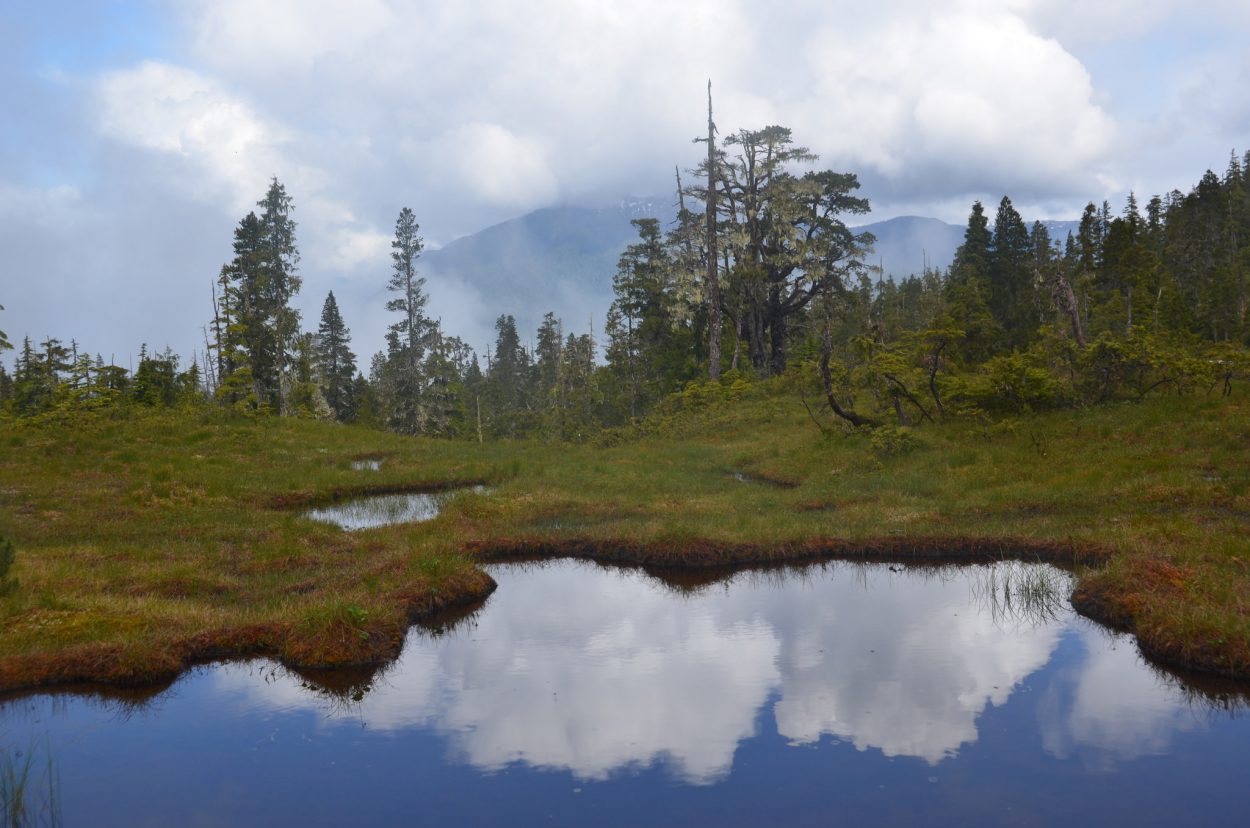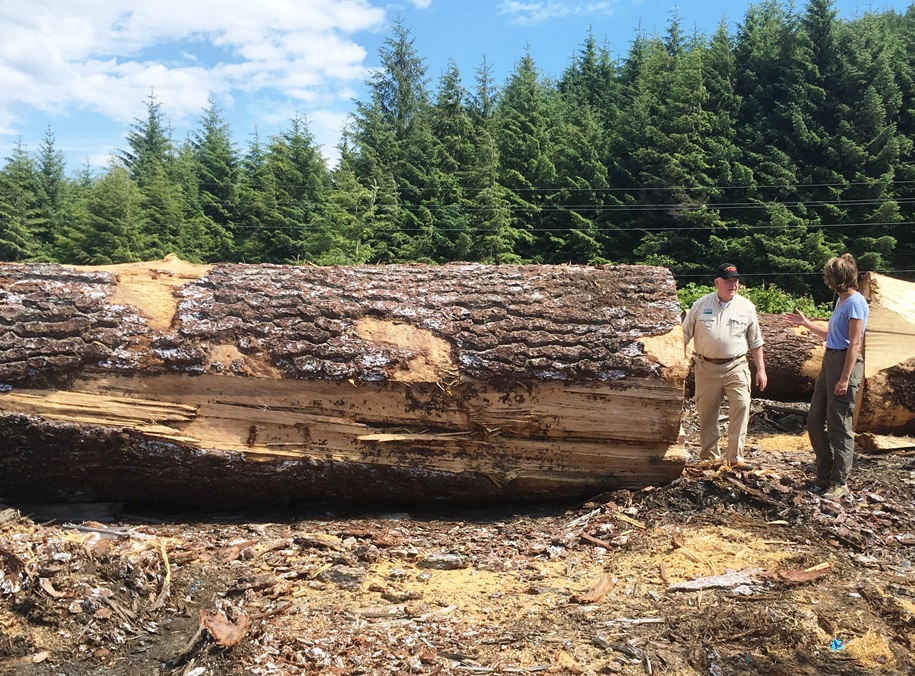
The Tongass National Forest near Wrangell, Alaska, 2016. (Creative Commons photo by Rob Bertholf)
The Biden administration appears poised to reinstate a rule dating back to the Clinton White House that restricts new roads in the Tongass National Forest in Southeast Alaska.
The rule also restricts tree harvest in more than half of the Tongass — about 9.4 million acres. President Donald Trump ended the protections for the forest three months before leaving office.
The U.S. Department of Agriculture, parent agency of the U.S. Forest Service, published a regulatory notice on June 11 saying it plans to “repeal or replace” a Trump administration regulation from October that removed Roadless Rule restrictions in the Tongass.
The notice says USDA is proposing the change to be consistent with President Biden’s executive orders on climate.
The Alaska Forest Association, a timber industry group, criticized what it called a “one-size-fits-all” approach that would reinstate the same restrictions on Southeast Alaska’s national forest as those in most of the Lower 48.
“USDA and Congress have always treated management of the Tongass as unique,” AFA’s Executive Director Tessa Axelson wrote in a statement to CoastAlaska.
But some scientists and environmental organizations have long argued that the Tongass — which is one of the world’s largest intact temperate rainforests — plays a critical role in combating climate change.
Research shows the rainforest stores about 40% of all of the carbon in the country’s national forests.
“This is a globally significant resource,” said Trout Unlimited’s legal director Austin Williams, on Friday. “There’s absolutely no reason for us to continue to clear-cut log old-growth forest, it’s a critically important resource, and something that we need to be taking much better care of.”
Joel Jackson, president of the Organized Village of Kake, a federally recognized tribe on Kupreanof Island, welcomed the announcement. His tribe was among those that joined a lawsuit filed by conservationists and fishermen seeking to overturn the Trump administration’s Roadless Rule exemption in Southeast Alaska.
“As Native people, we are tied to the land,” he said Friday morning. “We go shopping in our forests and our waters to get our food, traditional food that we eat mostly. So it’s important that we have the old growth timber.”
Some in the tourism sector had also weighed in on the importance of wilderness to securing Southeast Alaska’s place as a global destination.
“For tourism and recreation businesses, wild and undeveloped land is a big part of what draws visitors to Alaska,” Dan Kirkwood, a longtime wilderness guide and business owner, wrote in an email. “The Tongass is a world-class adventure travel destination. It’s time to recognize that. We need the Forest Service to start planning for sustainable tourism development that benefits our communities.”
Since its adoption in 2001, the Roadless Rule has been subjected to regular litigation and has pitted the State of Alaska against the federal government, with tribal, environmental, tourism, fishing and industrial organizations all weighing in.
Robert Venables, executive director of Southeast Conference, a regional civic and business organization, says the announcement injects further “uncertainty” over access to Southeast Alaska’s natural resources.
“It’s yet again another instance where the federal government — every single administration — is coming out there to change the rules,” he said Friday morning. “It’s very disappointing to see the continual back-and-forth every four years.”

Secretary of Agriculture Sonny Perdue and Alaska Sen. Lisa Murkowski look at some old-growth logs in the yard at Viking Lumber in Klawock. The two toured Prince of Wales Island in 2019. (KRBD photo by Leila Kheiry)
Alaska’s politicians have long argued that the rule restricts Southeast Alaska’s ability to support itself — and the rest of the state — economically.
Gov. Mike Dunleavy expressed his disappointment in a statement on social media Friday, saying “North to the Future means North to Opportunity, and we will use every tool available to push back on the latest imposition.”
U.S. Sen. Lisa Murkowski – a longtime proponent of logging in Southeast Alaska – also released a critical statement.
“The Trump administration, through the Forest Service and USDA, put considerable work and effort into the final rule and now the Biden administration is literally throwing it all away,” she wrote in a statement. “I will be using every tool at my disposal to fight back on the administration’s latest action.”
It remains unclear what will happen next. It took the Trump administration nearly two years to undergo a full rulemaking process that included public hearings, and formal consultations to rewrite the rules.









